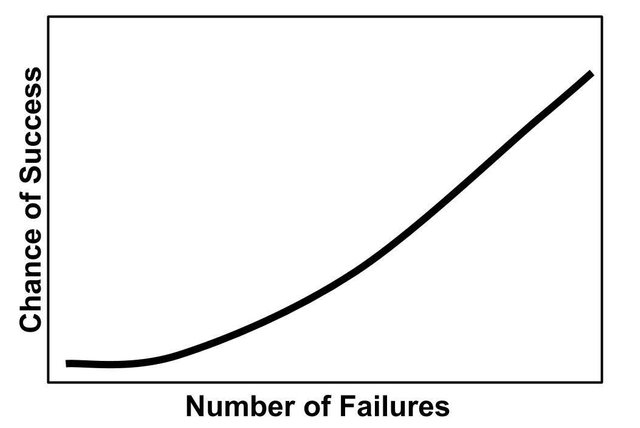Fail Quickly

Think of the last time you failed at something? If you are honest with yourself, you already probably made several small failures today. I am not talking about anything earth-shattering, but rather simple failures such as making a wrong turn while driving, forgetting something as you walk out the door or underestimating the amount of time you need to get to the airport early enough to make it through security lines and reach your gate on time. We all make mistakes; this makes us human.
The current culture tells us the story that the most successful people never make mistakes and they are great decision makers. Think about how being “wrong” is portrayed today. (the coach who makes a play call that led to a loss or the leader of an organization who invested in the wrong product line that hurt the bottom line. In reality, they took a risk that failed, whereas if the outcome went the other way they would have looked like a genius.
Our culture also emphasizes that if you are an expert, that means people should listen to them and not question ideas or decisions because the experts have it figured out. This can be seen in the interactions between entry-level employees and their managers and even in the scientific community. However, this idea of flawlessness is flawed and hides the truth that successful people have failed and failed quickly to get where they are at today.

To “fail quickly” means that you should not be afraid to make mistakes and not to let fear prevent you from trying something new. The reality is that this is the best way that humans learn. Successful people don’t stand out because they go with the flow, they stand out because they take risks and fail quickly. These are the shallow roots I have discussed in ““A” Bridge”. When they do fail, they do not stubbornly continue with the same idea to cover up their failure, they course-correct and set a new path until they fail again. Successful people will often fail multiple times until they finally reach success. Think about today’s building standards, these standards evolved to where they are today because of past failures. Software evolves and becomes more efficient over time because there were design flaws in the architecture that became obvious as people used the software. By keeping your mind open and open to observation, you can readily see “why” failures happen. Always seek to understand the “why” and when you do you can quickly learn and set a new direction to avoid those same failures again.
The Scientific Method is a perfect example of the principle to “fail quickly”. Observe things, gather info, make a “best guess”, “test your guess” and then adjust your guess and retest. Today’s scientific achievements would not have reached the current state if humans just stopped at “make a best guess” because they didn’t want to come out with results that showed them wrong. One must set aside their EGO to maximize their ability to learn. If you worry about appearing “right”, you will have a hard time learning. “Fail quickly” so you can re-adjust and set your course to a more productive future.
What about you? What have you failed at recently and how did you figure out the why?
Web: http://www.cryptocoach.cc
Memo.Cash: https://memo.cash/profile/16A3J6ZCj3udFABRVc2zRK9fkWMZD5czJ7
Minds: https://www.minds.com/richellis
Yours: https://www.yours.org/@richfromcryptocoach
